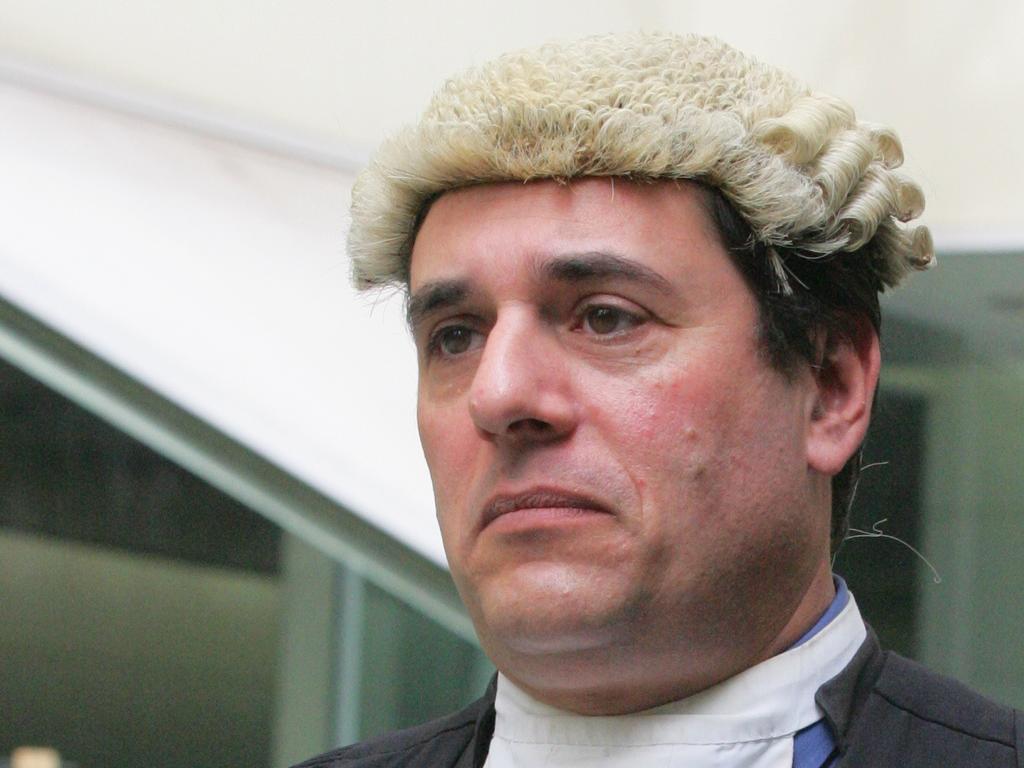Federal Circuit Court judge Guy Andrew’s ‘cruel, humiliating’ conduct forces retrial
Judge Guy Andrew’s behaviour has also triggered fresh calls for a federal judicial complaints-handling body.

A judge’s “cruel, insulting, humiliating and rude” behaviour towards lawyers representing a Queensland father has forced a retrial of a family law dispute involving a seven-year-old girl and triggered fresh calls for a federal judicial complaints-handling body.
Federal Circuit Court judge Guy Andrew was appointed by the Coalition last year as the court’s sole judge in Townsville and is now receiving mentoring and counselling for his behaviour. It understood his conduct has been the subject of two complaints and has caused distress to practitioners and litigants in other cases.
In a decision published on Tuesday, the full Family Court said Judge Andrew’s behaviour in the case involving the seven-year-old girl, known as “Adacot & Sowle”, had been “hectoring, insulting, belittling, sarcastic and rude” and “amounted to an abuse of the power of his position”.
Read an extract of an exchange between Judge Andrew and the solicitor for the father here
“The tone, nature and ferocity of his Honour’s comments could never be seen as justified, and in our view resulted in the father not receiving a fair trial and raised the identified apprehended bias, that no matter what the father’s case was as presented, it would be rejected,” the appeal judges said.
The judge attacked the father’s barrister, Brisbane silk Graeme Page QC, over his appearance, his apparent failure to bow and accused him, multiple times and without justification, of lying or providing false information. Judge Andrew interrupted Mr Page so often he was unable to utter more than three sentences at a time on the first day of trial, and variously described his performance as “garbage”, “disgraceful”, “pathetic” and “like a really bad Monty Python skit”. The appeal judges said there was “no basis” for the judge to have impugned Mr Page’s professionalism.
The barrister decided on the third day it would be best for his client if he withdrew from the case to “improve the atmosphere in the proceedings” — but the attacks continued on the man’s solicitor. “If possible, his Honour’s conduct worsened”, the appeal judges said.
“The primary judge’s treatment of and conduct towards the father’s solicitor was such that it could bear no description other than taking inappropriate advantage of the undoubted power imbalance that exists between the judge and the lawyer and, indeed, counsel for the mother conceded during oral argument on the appeal that it amounted to bullying by the judge,” they said.
In a bizarre exchange, the judge chastised the solicitor for using the word “just”, then criticised him for using the word “all”, and for “looking away”, and said he had a “cognition problem”.
Federal Circuit Court Chief Judge Will Alstergren said “all court users, including litigants and legal practitioners, should rightly expect to be treated with respect when they come to court”.
Although he could not comment on the decision, he said Judge Andrew had been relatively new when the case was heard and he had been sitting in a single-judge registry, which could “present a number of challenges”.
“When concerns were raised with the court, additional judicial education and support mechanisms were quickly put in place such as mentoring and counselling, as well close monitoring,” he said.
“All judicial decisions are subject to appeal as well as criticism and that process has been invoked in this instance.”
Law Council of Australia president Pauline Wright said accusations of bullying, including in the courts, should always be taken seriously.
“That’s why the Law Council continues to advocate strongly for a stand-alone judicial commission to investigate complaints against judges,” she said.
“There is currently insufficient transparency over the handling and outcomes of complaints against commonwealth judges. The public rightly demands fair and open accountability and this would be in the best interests of the judiciary as well.”
Taxpayers will be forced to pay the legal fees for both the mother and father associated with the appeal and a second trial; the full Family Court took the unusual step of issuing a certificate that said in their opinion it would be appropriate for the Attorney-General to authorise payments to the pair to cover their costs of the appeal and retrial.
Two other Federal Circuit Court judges appointed by the Coalition have also received mentoring for their conduct on the bench, Sal Vasta and Sandy Street. Other judges have been the subject of complaints because of lengthy delays in making decisions.
The body representing judges, the Judicial Conference of Australia, and academics have also called for the creation of a federal judicial commission to handle complaints about federal judges.
Legal bodies had welcomed the appointment of Judge Andrew last year, who was an experienced family law barrister and had also worked as a solicitor for Legal Aid Queensland.
-
Extract of an exchange between Judge Andrew and the solicitor for the father in Adacot & Sowle: “What does ‘just’ mean?”
[SOLICITOR FOR THE FATHER]: Your Honour, I just wanted - - -
HIS HONOUR: Just – just wait. You “just” – what does that mean?
[SOLICITOR FOR THE FATHER]: Can I just finish what I’m saying?
HIS HONOUR: No, no. What does “just” mean?
[SOLICITOR FOR THE FATHER]: Can I just finish what I’m saying, your Honour?
HIS HONOUR: I said, “What does ‘just’ mean?”
[SOLICITOR FOR THE FATHER]: It was start of – there was something I wanted to actually say to you.
HIS HONOUR: I don’t understand what “I just” means.
[SOLICITOR FOR THE FATHER]: Your Honour, can I - - -
HIS HONOUR: No, no. Tell me what it means, Mr Dwyer.
[SOLICITOR FOR THE FATHER]: I don’t know what you’re saying to me, your Honour. I just want to - - -
HIS HONOUR: No, no. You uttered the words “I just” - - -
[SOLICITOR FOR THE FATHER]: I just wanted to - - -
HIS HONOUR: - - - and I then said, “What does ‘just’ mean?” What does it mean? It’s a simple question.
[SOLICITOR FOR THE FATHER]: It was - - -
HIS HONOUR: You uttered the word. You must know what it means.
[SOLICITOR FOR THE FATHER]: It was part of a phrase I was going to say – I just wanted to say.
HIS HONOUR: There’s no such thing as “I just”. You either do or you don’t, correct?
[SOLICITOR FOR THE FATHER]: That’s not what I meant to say.
HIS HONOUR: Correct? That’s what came out of your mouth.
[SOLICITOR FOR THE FATHER]: Your Honour, it’s taken out of - - -
HIS HONOUR: That’s why I asked. I need clarity. I need particularity.
[SOLICITOR FOR THE FATHER]: Yes.
HIS HONOUR: What does “‘just” mean?
[SOLICITOR FOR THE FATHER]: It was part of a phrase to - - -
HIS HONOUR: What does it mean?
[SOLICITOR FOR THE FATHER]: I know what it means.
HIS HONOUR: I beg your pardon?
[SOLICITOR FOR THE FATHER]: Just - - -
HIS HONOUR: What did you just say to me?
[SOLICITOR FOR THE FATHER]: I know what it means, your Honour.
HIS HONOUR: Well, tell me what it means.
[SOLICITOR FOR THE FATHER]: It means just.
HIS HONOUR: Don’t be impertinent, Mr Dwyer. I’ve asked you what does it mean.
[SOLICITOR FOR THE FATHER]: What does – what does “just” mean?
HIS HONOUR: Don’t ask me the question that I’ve asked you.
[SOLICITOR FOR THE FATHER]: Your Honour, I don’t - - -
HIS HONOUR: Please, don’t insult my intelligence, Mr Dwyer.
[SOLICITOR FOR THE FATHER]: I’m not insulting you. Your Honour, I just wanted - - -
HIS HONOUR: There we go again. What does it mean?
[SOLICITOR FOR THE FATHER]: Can I – your Honour - - -
HIS HONOUR: No, no. What does it mean?
[SOLICITOR FOR THE FATHER]: Your Honour, may I start again, please?
HIS HONOUR: No, no. It doesn’t mean anything to me. Don’t look askance, Mr Dwyer. On the record I will note your demeanour, looking away, looking down.
[SOLICITOR FOR THE FATHER]: It’s one of - - -
HIS HONOUR: Keep going, Mr Dwyer.
[SOLICITOR FOR THE FATHER]: May I start again, please, your Honour?
HIS HONOUR: Keep going, Mr Dwyer.
[SOLICITOR FOR THE FATHER]: Your Honour, I just wanted to raise the issue that the document you asked - - -
HIS HONOUR: What does “just” mean?
[SOLICITOR FOR THE FATHER]: Just there. Just – just – just made it. It’s an adjective. It’s to go... it’s meant to go with another word. “Just in time” or “Just made it”, for example. Your Honour, what I’m trying to ask or have understood, perhaps, that what you asked us to hand up this morning by way of agreed orders, that they are part of your final order, whatever that may be, because otherwise the first clause says that all orders are discharged. It was meant to be... as a final order.




